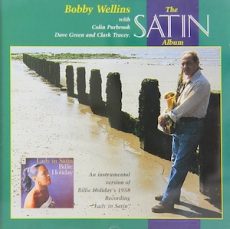
Daily Dose Of Jazz…
Colin Thomas Purbrook was born February 26, 1936 in Seaford, East Sussex, England and learned piano from the age of six from his father, who was also a professional pianist. As an eleven year old, in 1947 he won three Challenge Cups at the Brighton Music Festival. He went on to study music at the Fitzwilliam College, Cambridge. As well as playing piano, he also played the trombone with the Cambridge University Jazz Band.
Leaving Cambridge in 1957 he joined Sandy Brown’s quintet on double bass for a six-month period at the popular Oxford Street 100 Club. He played piano for three years with Al Fairweather’s All Stars, and also played with Kenny Ball, both as a pianist, trumpeter and double bassist. In the early 1960s he worked with Kenny Baker, Ian Carr, Tony Coe, Bert Courtley, Jimmy Deuchar, Wally Fawkes, Alan Ganley, Derek Hogg, Dudley Moore, John Picard, Don Rendell, Ronnie Ross, and Ronnie Scott.
In 1961 he worked alongside composer and musician Charles Mingus on the music score for the film All Night Long which was eventually released in 1962. Later in the decade he continued working with Brown and Coe, as well as with Brian Lemon, Humphrey Lyttelton, and Phil Seamen on drums. He played piano for the BBC 2’s music programme Jazz 625 with Dakota Staton and the Keith Christie All Stars respectively and was a member of Benny Goodman’s sextet when the clarinetist recorded a special gala performance for BBC2 in 1964.
He often played with drummer Phil Seamen, joining his trio during the late 1960s and early ’70s. Colin was a frequent sideman for Americans touring the UK, and worked over the course of his career with Chet Baker, Ruby Braff, Benny Carter, Doc Cheatham, Eddie Lockjaw Davis, Art Farmer, Dexter Gordon, Barney Kessel, Howard McGhee, James Moody, Annie Ross, Zoot Sims, and Buddy Tate. He was involved with the production of a number of stage plays from the 1970s through the 1990s. He led trios and quartets into the 1990s, took up a couple of residencies as a solo pianist, and continued to tour and appear on radio and television and, despite the fact that he began to suffer from rheumatoid arthritis in 1995.
Pianist, double bassist, trumpeter and songwriter Colin Purbrook, who also led his own smaller and larger ensembles, died in London, England of cancer on February 5, 1999.
More Posts: double bass,history,instrumental,jazz,music,piano,songwriter,trumpet
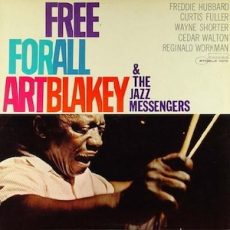
Requisites
Free For All ~ Art Blakey and The Jazz Messengers | By Eddie Carter
A few years ago, in a discussion of Miles Davis at Carnegie Hall, I stated that every record collector has a few titles in their library that mean the world to them. Free For All (Blue Note BLP 4170/BST 84170) by Art Blakey and The Jazz Messengers is one of those for me. I’ve listened to it countless times over the years whenever I was down or feeling sad, and it always makes me happy. Art Blakey was not only one of the most energetic drummers in jazz but also the leader of one of the best ensembles for over three decades. His group on this date had been together for three years: Freddie Hubbard on trumpet, Curtis Fuller on trombone, Wayne Shorter on tenor sax, Cedar Walton on piano, and Reginald Workman on bass. Free For All initially hit the stores in 1965, and my copy is the 1984 Pathé Marconi French Stereo reissue, sharing the original catalog number.
The title tune, Free For All by Wayne Shorter, starts briskly with the rhythm section’s introduction to the sextet’s aggressive theme. Wayne is up first and swings fiercely in a heated interpretation; then Curtis follows with a vigorously energetic solo. Lee takes over to give a high-octane reading, and Art adds an explosively swinging finale preceding the group’s rousing climax. Wayne Shorter’s Hammer Head slows the beat down to mid-tempo for the ensemble’s leisurely-paced melody. Shorter starts things off with a relaxing interpretation, and then Hubbard treats the listener to an exquisitely beautiful solo. Fuller follows with an excellent reading next, and Walton has the final say before the sextet returns to take the song out.
The Core by Freddie Hubbard is his tribute to the organization CORE (Congress of Racial Equality). It opens with the trio’s introduction ahead of the ensemble’s spirited melody. Wayne launches the first solo like a rocket soaring skyward. Freddie turns up the heat next; then Curtis seamlessly weaves his way through the third interpretation like a flow of electricity. Cedar offers the final adrenaline rush into the sextet’s theme reprise and the trio’s fadeout. Clare Fisher’s Pensativa is a beautiful ballad that Freddie arranged for this date. The group begins in a relaxed groove, setting the stage for Hubbard’s gorgeous opening solo. Shorter expresses so many feelings in the second statement; then Walton’s reading is a delight to hear until the theme returns and the rhythm section dissolves slowly into nothingness.
Alfred Lion produced Free For All, and Rudy Van Gelder was the recording engineer. The front cover displays a Mono catalog number, but this album is a Stereo release. The sound quality on this Pathé Marconi reissue has an amazing soundstage that brings the sextet to your listening room with stunning fidelity. Art Blakey worked with some of the best musicians during his lifetime, and The Jazz Messengers were the springboard for dozens of careers. He was one of the great teachers, and the music his groups made still brings pleasure to jazz fans worldwide. If you’re in the mood for an album that still sounds as fresh as the day it was released, I invite you to check out Free For All by Art Blakey and The Jazz Messengers the next time you’re out record shopping. It’s a great starting point to explore their comprehensive discography and an album filled with energy and fire that’s as good as it gets for those who enjoy hard bop!
~ Miles Davis at Carnegie Hall (Columbia CL 1612/CS 8612) – Source: Discogs.com © 2024 by Edward Thomas Carter
More Posts: choice,classic,collectible,collector,drums,history,instrumental,jazz,music
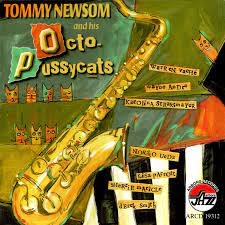
Daily Dose Of Jazz…
Thomas Penn Newsom was born in Portsmouth, Virginia on February 25, 1929 and earned degrees from the Norfolk Division of the College of William & Mary, the Peabody Conservatory of Music, and Columbia University. He went on to serve in the United States Air Force during the Korean War where he played in the band.
He toured with the Benny Goodman Orchestra and performed with Vincent Lopez in New York. Newsom joined the Tonight Show Band in 1962, and left it when Carson retired in 1992. In addition to Carson’s orchestra, he performed with the orchestra for The Merv Griffin Show.
Well known within the music industry as an arranger as well as a performer, he arranged for groups as varied as the Tonight Show ensemble and the Cincinnati Pops Orchestra, and musicians Skitch Henderson, Woody Herman, Kenny Rogers, Charlie Byrd, John Denver, and opera star Beverly Sills.
He won two Emmy Awards as a music director, one in 1982 with Night of 100 Stars, and in 1986 for the broadcast of the 40th Annual Tony Awards. He also recorded six albums as a bandleader and another four as a sideman.
On April 28, 2007 saxophonist Tommy Newsom, who was nicknamed Mr. Excitement by Johnny Carson and was the band’s substitute director, died of bladder and liver cancer at his home in Portsmouth. He was 78 years old.
More Posts: arranger,bandleader,history,instrumental,jazz,music,music director,saxophone
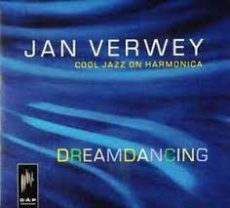
Daily Dose Of Jazz…
Jan Verwey was born on February 24, 1936 in Vlissingen, The Netherlands. A self-taught harpist, he created his own style on this characteristic instrument. He is the only one who plays octaves on the harmonica.
Very much a bebopper and his unique self-developed instrumental technique, he boldly brings about his desired harmony and melody to his solo’s. During his first visit to the United States in 1990 he was immediately rushed into the recording studio by producer Bill Goodwin, Phil Woods drummer, to record The Dutch Connection which led to a performance at the North Sea Jazz Festival in the Netherlands.
In 1991 he was back in the States being the only European invited to play at the festival Celebration Of The Arts in Watergap, as a soloist. He also gave a duo concert with pianist Hod O’brien who recorded with Chet Baker at The Dearhead Inn. In 2007 he was playing at festivals in Medicine Hat and Calgary in Canada. He has toured Europe, playing in Copenhagen, Denmark as well as Frankfurt, Hamburg, Dusseldorf, Rhede and Darmstadt in Germany.
He has a nomination for the Pall Mall Export Award, was a guest soloist with the Metropole Orchestra, in addition to guest performances on television- and radio shows. As a composer he has written for television series, documentaries and commercials.
He has recorded eight albums as a leader with his last being his 2019 The Music of Horace Silver. Harmonica player Jan Verwey, who plays bebop and cool jazz, continues to perform.
More Posts: bandleader,harmonica,history,instrumental,jazz,music
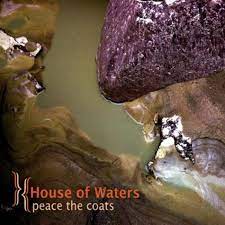
Daily Dose Of Jazz…
Moto Fukushima was born in Kobe, Japan on February 23, 1978 and received the Outstanding Performer Award before graduating Summa Cum Laude from Berklee College of Music. His musical style is a unique combination of Western classical music, Japanese traditional music, and African-inspired music of South America, which is evident in his jazz improvisation. His playing is characterized by a remarkable blend of finesse, subtlety, and power.
He is a co-leader of the Brooklyn-based power trio, House of Waters. The band has released two albums on the Grammy Award-winning group Snarky Puppy’s GroundUp label, with the first album reaching #2 on the iTunes World Music chart, and the second album hitting #4 on the iTunes Jazz chart.
His music has been featured in the Sports Emmy Award-winning piece on ESPN’s E60, and he won 3rd place in the International Songwriting Competition in 2014. He has also been the recipient of the ASCAP Plus Award.
Moto has collaborated with Mike Stern, Leni Stern, Karsh Kale, Dave Weckl, Dave Eggar, Big Apple Circus, Alex Skolnick, and Gil Goldstein. Six-string bass player, composer, and shamisen player Moto Fukushima, currently based in New York City, continues to perform and record.
More Posts: bass,composer,history,instrumental,jazz,music,shamisen



